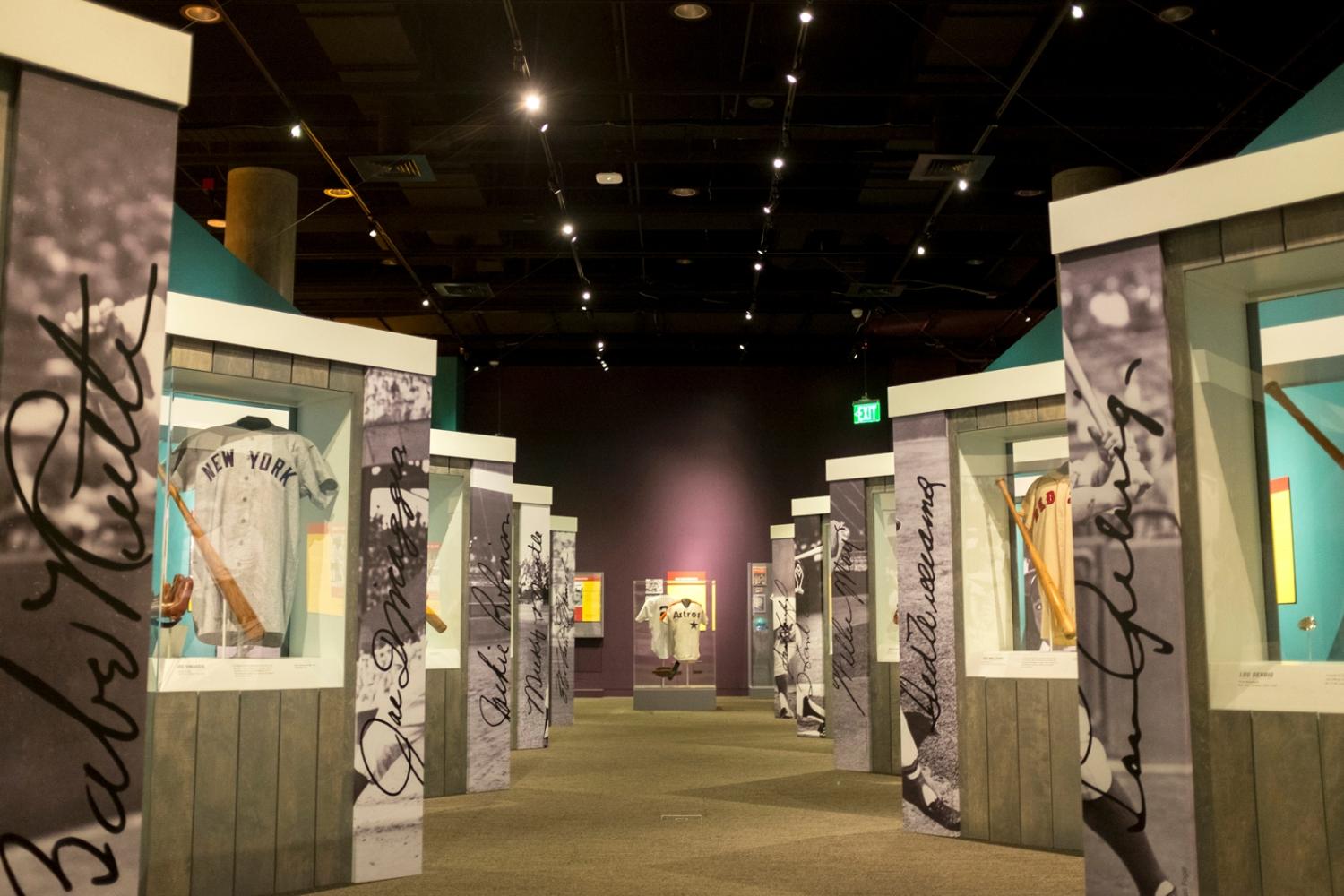Good luck to Colorado’s new state historians — you’ll need it

Original article can be found at The Denver Post
Originally published on August 17, 2018 at 12:01 pm By: Patty Limerick
This Thursday, May 17, 2018, photograph, shows “Play Ball!,” the new special exhibit inside the History Colorado Center, in Denver.
Kevin J. Beaty, Denverite via AP
This Thursday, May 17, 2018, photograph, shows “Play Ball!,” the new special exhibit inside the History Colorado Center, in Denver.
If you are a historian who has invested hours beyond measure in speaking to and writing for public audiences, you have learned one law of the universe: unless you are swift, nimble, and agile in responding to criticism, you will soon land in a swamp of misunderstanding and wasted effort.
Readers, that recognition provides the bedrock for the proposition I ask you to consider and (if you are persuaded by it) to endorse: Coloradans would benefit if the position of state historian could be set free of the shackles tying it to a distinctly un-nimble and un-agile governmental institution.
Rapid and forthright response to criticism is not currently the driving passion of our state historical society. A month ago, in a column in these pages, I invited the leadership of History Colorado to join me in a public forum. In the company of engaged Coloradans, we would explore what choice of historical subjects, for exhibits and programs, would best respond to the urgent need for civil deliberation in our times.
To make sure that this invitation reached its recipients, I sent a message to the History Colorado CEO and the board members directly, providing a link to my column and a personal invitation to take part in the forum. At the same time, I also asked the History Colorado CEO for information on several matters of institutional policy and conduct that mystify me.
The response? So far, a sphinx-like silence.
If we make a healthful choice for humor over irritation, this refusal or inability to respond proves to be a source of substantial merriment. Think about this propensity for privacy, and a review of the “Code of Conduct and Ethics,” adopted by the History Colorado Board in February of 2017, delivers a full dose of comedy.
Under the heading of “Personal and Professional Integrity,” the code declares that all individuals working at History Colorado “are expected to act with utmost honesty, integrity, transparency, and openness in all of their dealings,” a commitment that will be demonstrated in “responsiveness to public concerns.”
A little later on, a section called “Openness and Disclosure” reaffirms and reasserts the institution’s commitment to responsiveness to inquiries: “History Colorado shall provide comprehensive and timely information to the public, media, and all stakeholders and shall be responsive in a timely manner to all reasonable requests for information.”
Put these admirable statements to the test by asking History Colorado’s leadership a direct question, and the results will indicate that this institution’s journey of reconciling principle to practice is in its early stages.
Scroll to continue with content
Meanwhile, History Colorado has moved forward to create a new Council of State Historians. And, while there is something inevitably flattering in the idea that it takes four men and one woman to replace me, I cannot keep from worrying about the fate of my apparent successors.
The five members appointed to this council are all good souls who have stepped forward to lend their expertise, reputation, and credibility to steady a troubled state institution. As they serve sequentially as chairs of the council, these five historians will each hold the office of state historian.
Before they accepted their new offices, the council members must have been given an official document called “Colorado State Historian: Position Description.” The state historian, this description declares, must agree to “act in” History Colorado’s “interests at all times.” If “the Board determines the State Historian has breached” these terms, “it may take any appropriate action against the State Historian, including removal.”
Presented with this document, I could not agree to it. Surrendering to such a demand for an institutional loyalty oath, I felt certain, would put my professional integrity and credibility in peril. Just as important, historians working under such a regime would forfeit and surrender the agility and nimbleness that are essential to their success — actually, to survival — as public figures addressing wide audiences.
If the Council of State Historians initially agreed to these terms, I hope they will soon have second thoughts.
In the meantime, with the goal of drawing on the power of historical perspective to improve our civic life, it’s time for the rest of us to think about a better administrative arrangement for the position of the Colorado state historian.
Here’s the proposition I now ask Coloradans — old-timers and newcomers, public officials and general citizens — to consider.
Rather than figures embedded in and fitfully consulted by a state bureaucracy, state historians who are appointed by and who report to the governor and the legislature would be far better positioned to serve their fellow Coloradans. Released from the tight leash of bureaucratic control, a free-ranging state historian could make the most of every opportunity to put historical perspective to work in engaging the public in civil and productive conversation.
Why not give it a try?
Patty Limerick is Colorado’s state historian and faculty director and chair of the Center of the American West at the University of Colorado.
To send a letter to the editor about this article, submit online or check out our guidelines for how to submit by email or mail.
Popular In the Community


